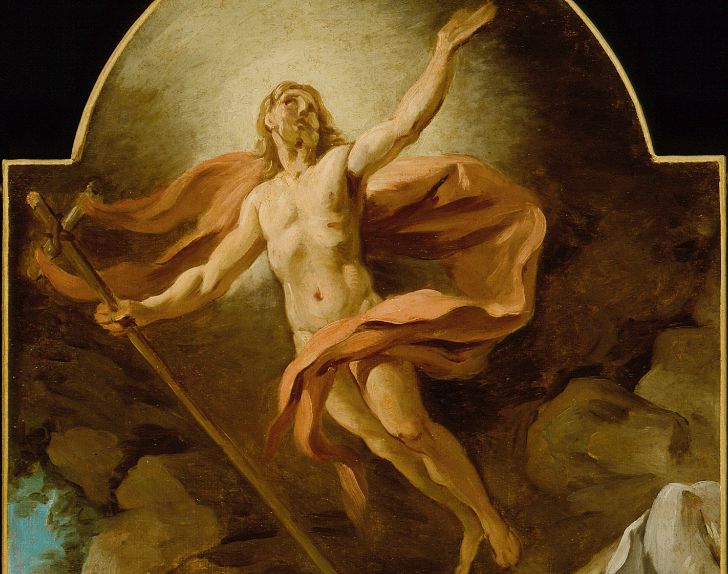As we roll toward Easter, the movie of the year in terms of eyeballs and dollars has to be “The Black Panther.” The cinematic realization of a comic book superhero, it is the latest entertainment from the Marvel empire.
Where once Western films and shows were the dominant mythology, and then science fiction, superheroes — like the recent hits “Wonder Woman” and “The Black Panther” — are today’s cultural fantasies.
We like struggles between good and evil — between T’Challa and Erik Killmonger — in which good nearly loses before triumphantly winning. T’Challa, the once and future king of Wakanda, even undergoes a near death and resurrection experience on his way to triumph.
Our superhero fantasies today also right the design flaws we might perceive in the real world: “Wonder Woman” establishes the physical prowess of women as superior to that of men, while “Black Panther” establishes the geographic and cultural superiority of Africa over the other countries of the world devoid of a stash of vibranium.
Perhaps the problems and challenges of today seem so immense that we long for superheroes, or super-easy solutions: the rescuer coming from the sky, other planets or remote islands. Technology — whether produced by Wakanda or Stark Enterprises — overwhelming all opponents. Gods from mythology, like Thor, coming not as the peacemakers but as warriors. We want someone to rescue us from all of our insurmountable obstacles.
It is quite amazing that in this cultural environment, some people still think that Christianity is the opiate of the people.
This Holy Week we come to the summit of our Catholic faith. In the superhero arc burned into the Christian imagination, we see Jesus enter triumphantly into Jerusalem. Yet like the ominous music in a film score foreboding some dark plot twist, we remember even in this moment of celebration his own predictions of his coming passion.
And the predictions come true with betrayal, humiliation and death. Not the near death of the cinematic hero, but the wretched, tortured, bloody death of a criminal of the state.
This does not appear to be any superhero we would ever be attracted to. Nor would many of the people of that time be attracted to one who suffered as he did, for they would know much better than we how shameful such a punishment was.
Three days later, Jesus appears. He triumphs over death. Not only that, he wins a victory over death for all of us — the undeserving, the sinful, the lost. But this re-emergence is not done with some sort of Hollywood extravaganza — a triumphant entry that grabs the world’s attention: Ironman soaring high into the sky over major urban areas, hailed by countless cheering throngs, a hero on the world’s terms.
Instead, he seems recognizable yet not recognizable, as when he appears to the disciples on the road to Emmaus. He re-emerges to some of his followers, but not all of them. He shows up in unexpected places, and then — in a reverse of the Hollywood hero — he ascends to the sky rather than drops down from it.
Not only that, but he does not promise perfection or worldly triumph to those hardy enough to have waited and believed. He promises a share of the cross. He calls for sacrifice. He says the first will be the last and the last first. He doesn’t offer us Wakanda or the Benedict Option: no idealized fortress resisting the corrosive wiles of the world.
He promises us Gotham. The field hospital. The leprosarium. He tells us that that is where we will find him.
Of course, there is the possibility of miracles and the power of a faith that moves mountains. But that isn’t the overriding message of the gospel. The message of the gospel is one of mercy, of sacrifice, of humility. It is no wonder that Hitler and his descendants have often been atheists who despise the “weakness” of Christianity. Fascism, whatever religious veneer it might adopt, has no sympathy for the Christian message.
Ours is no man-made superhero, for we would have created something much different. We would not have left room for freedom, but created a hero that overwhelms us and gives us no choice but to follow. We would not have created a hero who dies, much less one who comes back to life but does not wreak revenge.
And yet our hero is the only one who has won us salvation and who invites us to join him, no matter our flaws, no matter our status.
And in that powerful Good Friday gesture of venerating the cross, our hymn captures this holy paradox of a death that wins us eternal life:
“Behold, behold the wood of the cross,
On which is hung our Salvation.
O Come, let us adore.”
Greg Erlandson is the director and editor-in-chief of Catholic News Service.

